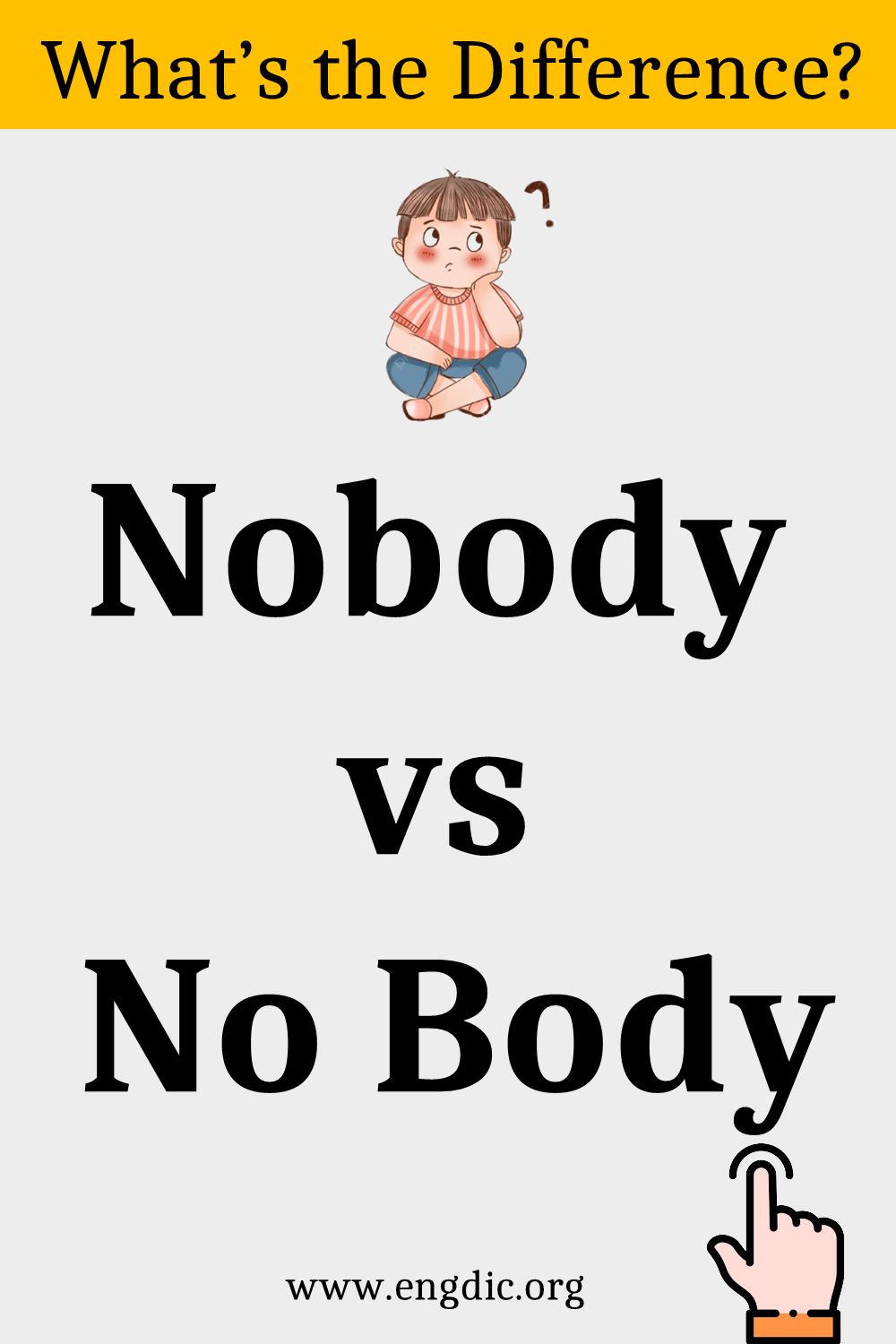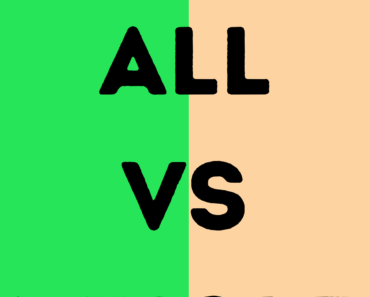The terms “nobody” and “no body” are often confused due to their similar pronunciation, but they have distinct meanings and usages in English. Understanding the difference can enhance clarity and precision in both written and spoken communication. Here’s a breakdown to clarify these terms:
Nobody
Meaning: “Nobody” is a pronoun that means “no person” or “not anyone.” It is used to refer to the absence of people in a particular context.
Usage:
- “Nobody” is commonly used in everyday conversations and writing to indicate that not a single person is involved or present.
- It is often used to emphasize the lack of participation or presence in a scenario.
Examples:
- “Nobody knows the trouble I’ve seen.”
- “There was nobody at the party.”
No Body
Meaning: “No body” is a phrase consisting of “no” followed by “body,” where “body” refers to a physical body, either of a person or an animal. It is used to indicate the absence of a physical entity.
Usage:
- “No body” is used in more formal or specific contexts, particularly in legal or medical fields.
- It is often relevant in discussions about physical presence or existence.
Examples:
- “They found no body at the crime scene, making the case difficult to solve.”
- “After the accident, no body was discovered in the wreckage.”
Key Differences in Usage
- Context: “Nobody” is more abstract and is used to refer to people in general. In contrast, “no body” is used in literal contexts to discuss the physical presence or remains of beings.
- Formality: “Nobody” is versatile and fits into casual and formal language, whereas “no body” often appears in contexts that are technical or legal.
- Connotations: Using “nobody” can express loneliness, exclusion, or universality, depending on the context. “No body” typically relates to more serious or somber situations involving life and death.
Understanding these differences ensures effective communication and helps avoid misunderstandings, especially in sensitive or specific contexts like legal discussions or literary analysis.







